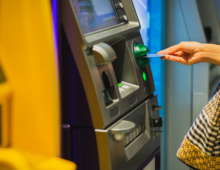Landlords have swindled tenants out of massive deposits, but efforts to counter fraud have left victims in limbo
South Korea uses a real estate system found nowhere else, in which tenants typically deposit between 60 to 80% of the property’s value as part of a two-year contract. This so-called jeonse system has the benefit of allowing tenants to live rent-free, while landlords can use the large deposits to engage in various financial activities.
But despite these advantages, a wave of fraud cases that have swept the country have underscored major flaws in jeonse practices, demonstrating tenants’ vulnerability to scammers and threatening to undermine a system that millions rely on for housing.
South Korea uses a real estate system found nowhere else, in which tenants typically deposit between 60 to 80% of the property’s value as part of a two-year contract. This so-called jeonse system has the benefit of allowing tenants to live rent-free, while landlords can use the large deposits to engage in various financial activities.
But despite these advantages, a wave of fraud cases that have swept the country have underscored major flaws in jeonse practices, demonstrating tenants’ vulnerability to scammers and threatening to undermine a system that millions rely on for housing.
Get your
KoreaPro
subscription today!
Unlock article access by becoming a KOREA PRO member today!
Unlock your access
to all our features.
Standard Annual plan includes:
-
Receive full archive access, full suite of newsletter products
-
Month in Review via email and the KOREA PRO website
-
Exclusive invites and priority access to member events
-
One year of access to NK News and NK News podcast
There are three plans available:
Lite, Standard and
Premium.
Explore which would be
the best one for you.
Explore membership options
© Korea Risk Group. All rights reserved.
No part of this content may be reproduced, distributed, or used for
commercial purposes without prior written permission from Korea Risk
Group.












